To successfully launch your business, it’s crucial to understand the cottage food laws that govern this type of entrepreneurship.
Maryland’s regulations are designed to balance the needs of small food entrepreneurs with consumer safety.
By familiarizing yourself with these laws, you can ensure your micro bakery is compliant and poised for success.
Key Takeaways
- Understand Maryland’s cottage food laws to ensure compliance.
- Register your business according to state regulations.
- Label your products correctly to meet legal requirements.
- Be aware of the sales limits imposed on cottage food businesses.
- Keep accurate records of sales and expenses for tax purposes.
Understanding Micro Bakery Maryland Cottage Food Laws
To successfully operate a micro bakery under Maryland’s cottage food laws, it’s essential to grasp the regulations. The cottage food law in Maryland allows individuals to produce and sell certain food products from their home kitchens, providing a great opportunity for entrepreneurs.
What Qualifies as a Cottage Food Business
A cottage food business in Maryland is defined as a business that operates from a residential kitchen, producing foods that are considered “cottage food products.” These products are typically baked goods, such as bread, cakes, and pastries, that are not potentially hazardous and do not require refrigeration. The Maryland Department of Health oversees these regulations to ensure compliance.
Recent Updates to Maryland’s Regulations
Recent updates to Maryland’s cottage food laws have expanded the types of products that can be sold and increased the gross sales limit to $50,000 for cottage food businesses. It’s crucial for micro bakery owners to stay informed about these changes to ensure compliance with the food safety regulations. The updates aim to support small businesses while maintaining public health standards.
Setting Up Your Home Baking Business
Setting up a home baking business under Maryland’s Cottage Food Laws involves several key steps. To ensure compliance and success, cottage food operators must navigate the regulatory landscape carefully.
Required Permits and Registrations
Under the Maryland cottage food law, you can sell foods that don’t require time-temperature controls for safety directly to customers. Maryland doesn’t regulate cottage food production operations like they do food establishments, so you don’t need a license or permit.
Food Safety Training Requirements
Food safety training is crucial for home bakers. While not always mandatory, it’s highly recommended to ensure you’re handling and preparing food safely. Consider taking a food safety course to learn best practices and reduce the risk of contamination.
Food Liability Insurance Considerations
Although not required, food liability insurance can provide valuable protection for your business. It can help cover costs in case of food-borne illnesses or other issues related to your products. Research insurance options to find a policy that suits your needs.

By following these steps and understanding the regulations, you can establish a compliant and successful micro bakery in Maryland.
Products and Sales Channels for Your Micro Bakery
Launching a successful micro bakery under Maryland’s cottage food laws requires knowledge of approved products and sales channels. As you navigate the regulations, understanding what baked goods are permissible and how to market them effectively is crucial.
Approved Baked Goods and Products
Under Maryland’s cottage food laws, micro bakeries are allowed to sell a variety of baked goods that are considered non-hazardous. These include:
- Cookies
- Breads
- Cakes
- Pastries
- Muffins

Products Not Allowed Under Maryland Law
Certain products are not permitted under Maryland’s cottage food laws. These include:
- Dairy products that require refrigeration
- Meat or meat-based products
- Products containing raw eggs
Understanding these restrictions is vital to operating within the law.
Packaging and Labeling Requirements
All cottage food products must be packaged in a way that prevents contamination and clearly labeled with the product name, ingredients, and your business name and address. Proper labeling requirements also include disclosing any potential allergens.
Where You Can Legally Sell Your Products
Micro bakeries can sell their products through various sales channels. These include:
- Farmers’ markets
- Online platforms (with certain restrictions)
- Roadside stands
- Direct sales to consumers
It’s essential to check the specific regulations regarding each sales channel to ensure compliance with Maryland law.
Conclusion: Growing Your Maryland Micro Bakery Business
As a cottage food entrepreneur in Maryland, launching a micro bakery under the state’s cottage food laws can be a rewarding venture. By understanding and complying with the regulations, you can successfully grow your business. Key steps include obtaining necessary permits, completing food handler training, and adhering to packaging and labeling requirements.
With the right approach, Maryland micro bakeries can thrive. Focus on producing high-quality, approved baked goods and exploring various sales channels to reach customers. As your business grows, consider investing in food liability insurance to protect your venture.
By following the guidelines outlined in Maryland’s cottage food laws and staying committed to food safety, you can build a loyal customer base and expand your operations. Whether you’re just starting out or looking to grow your existing micro bakery, the potential for success is significant. With dedication and the right knowledge, cottage food entrepreneurs can turn their passion into a thriving business.
FAQ
What is a cottage food business in Maryland?
A cottage food business in Maryland is a business that produces certain foods in a home kitchen, such as baked goods, jams, and jellies, and sells them directly to consumers.
What types of products are allowed under Maryland’s cottage food law?
Under Maryland’s cottage food law, allowed products include baked goods, such as bread, cake, and pastry, as well as high-acid fruit jams and jellies, and other non-hazardous foods that do not require refrigeration.
Do I need a license to operate a cottage food business in Maryland?
No, Under the Maryland cottage food law, you can sell foods that don’t require time-temperature controls for safety directly to customers. Maryland doesn’t regulate cottage food production operations like they do food establishments, so you don’t need a license or permit.
What are the labeling requirements for cottage food products in Maryland?
Cottage food products in Maryland must be labeled with the product name, ingredients, net weight or net volume, and the statement “Made by a cottage food operation” or “Made in a home kitchen.”
Can I sell my cottage food products online or through mail delivery?
Yes, you can sell your cottage food products through personal delivery or mail delivery, but they must be prepackaged and meet labeling requirements.
Are there any food safety training requirements for cottage food operators in Maryland?
While not required, food safety training is highly recommended for cottage food operators in Maryland to ensure compliance with state regulations.
Can I sell my cottage food products to retail food stores?
You can sell allowed foods directly to people from your residence, at farmers’ markets and other public events, or by personal delivery or mail. You can also sell your homemade food directly to a retail food store, which most states don’t allow.
A retail store means a licensed foodservice facility that sells prepackaged foods, like grocery and convenience stores and retail markets or bakeries. It doesn’t include restaurants, mobile food establishments, coffee shops, cafeterias, and the like.
If you wish to sell your products to a retail food store, you must complete an online form.
Do I need food liability insurance for my cottage food business in Maryland?
While not required, food liability insurance is recommended to protect your business in case of food-borne illness or other issues.
What are the requirements for packaging and labeling cottage food products in terms of allergen information?
Cottage food products in Maryland must be labeled with allergen information if they contain common allergens, such as nuts, dairy, or soy.
Can I make a claim about the nutritional content of my cottage food products?
If you make a nutritional claim about your cottage food products, you must comply with federal labeling requirements.
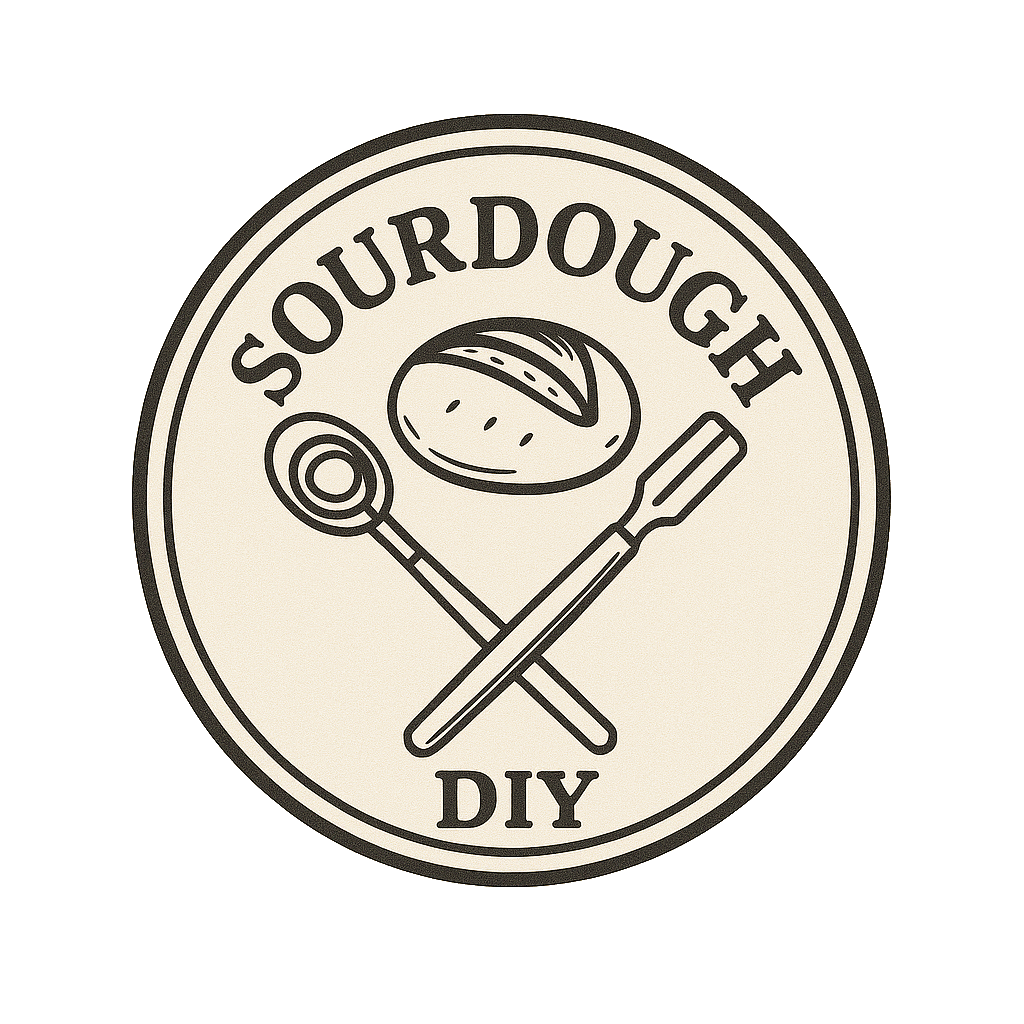
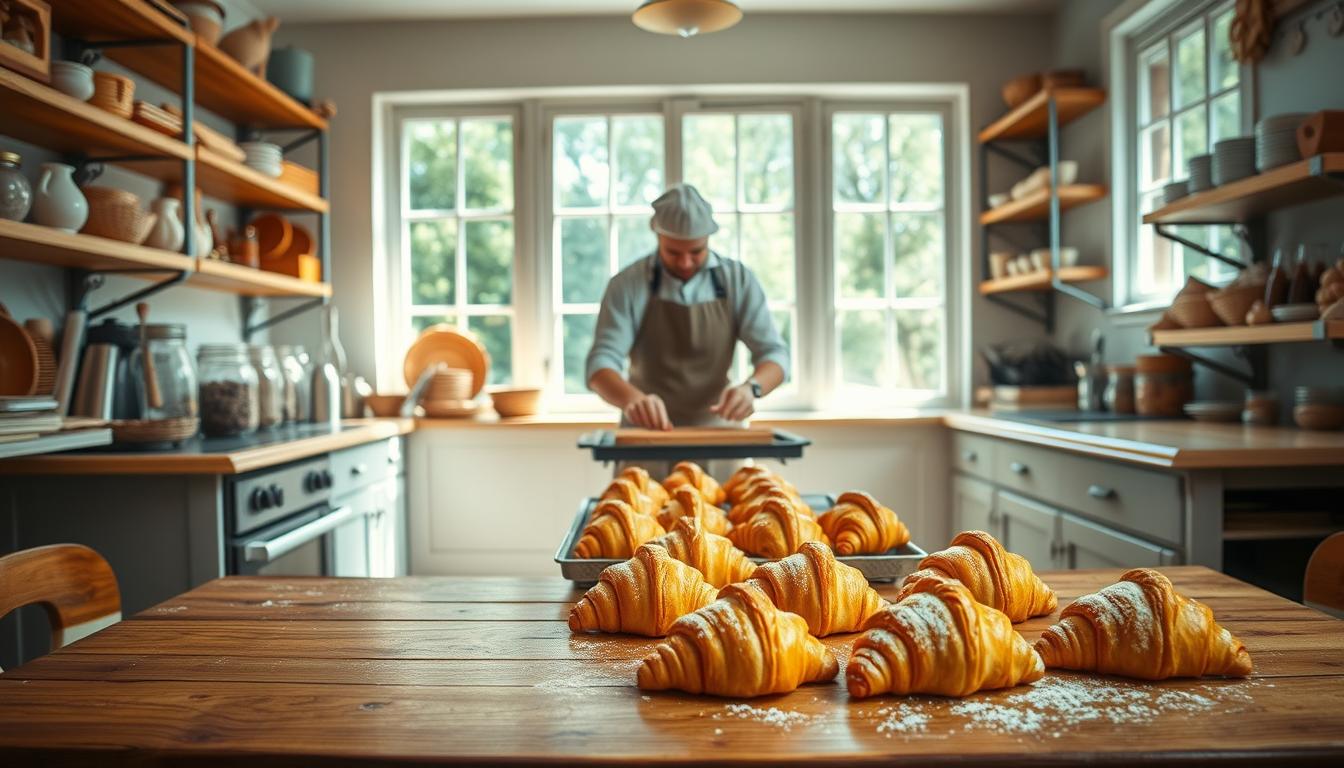
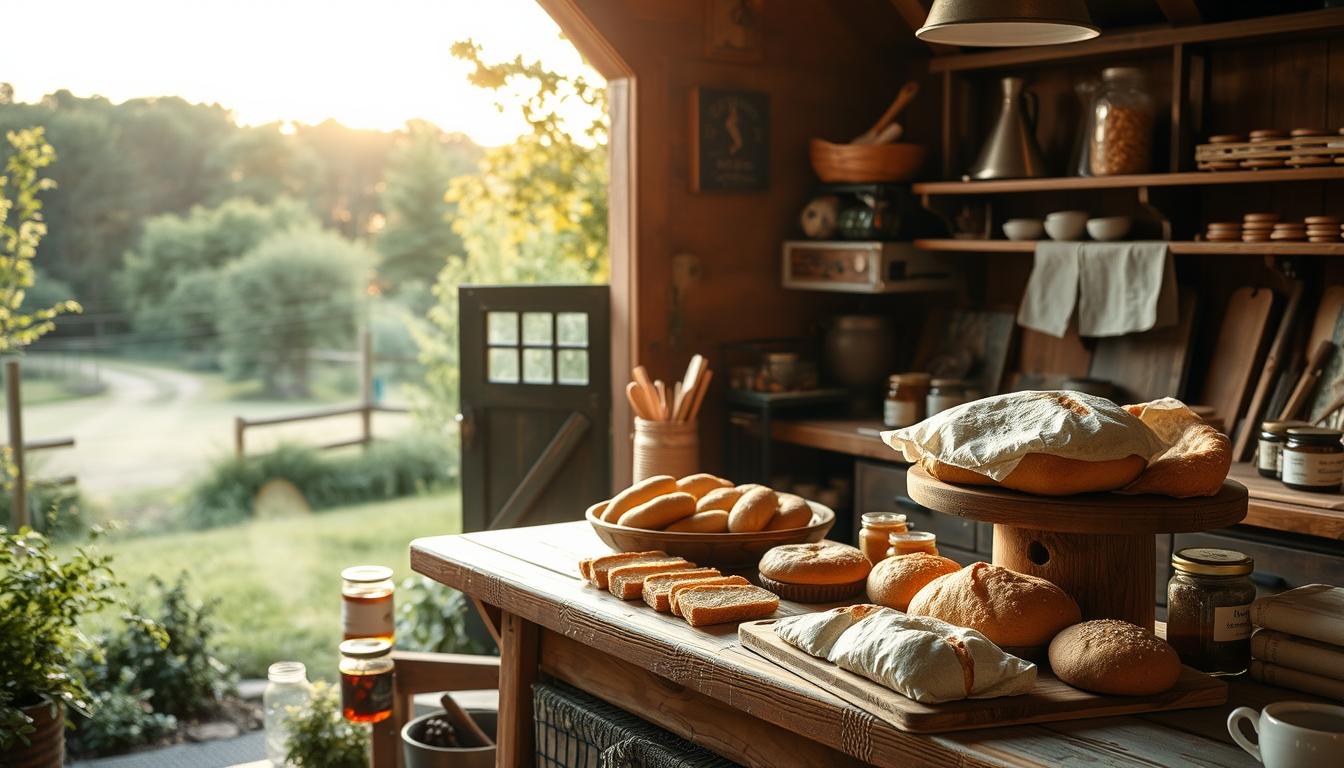
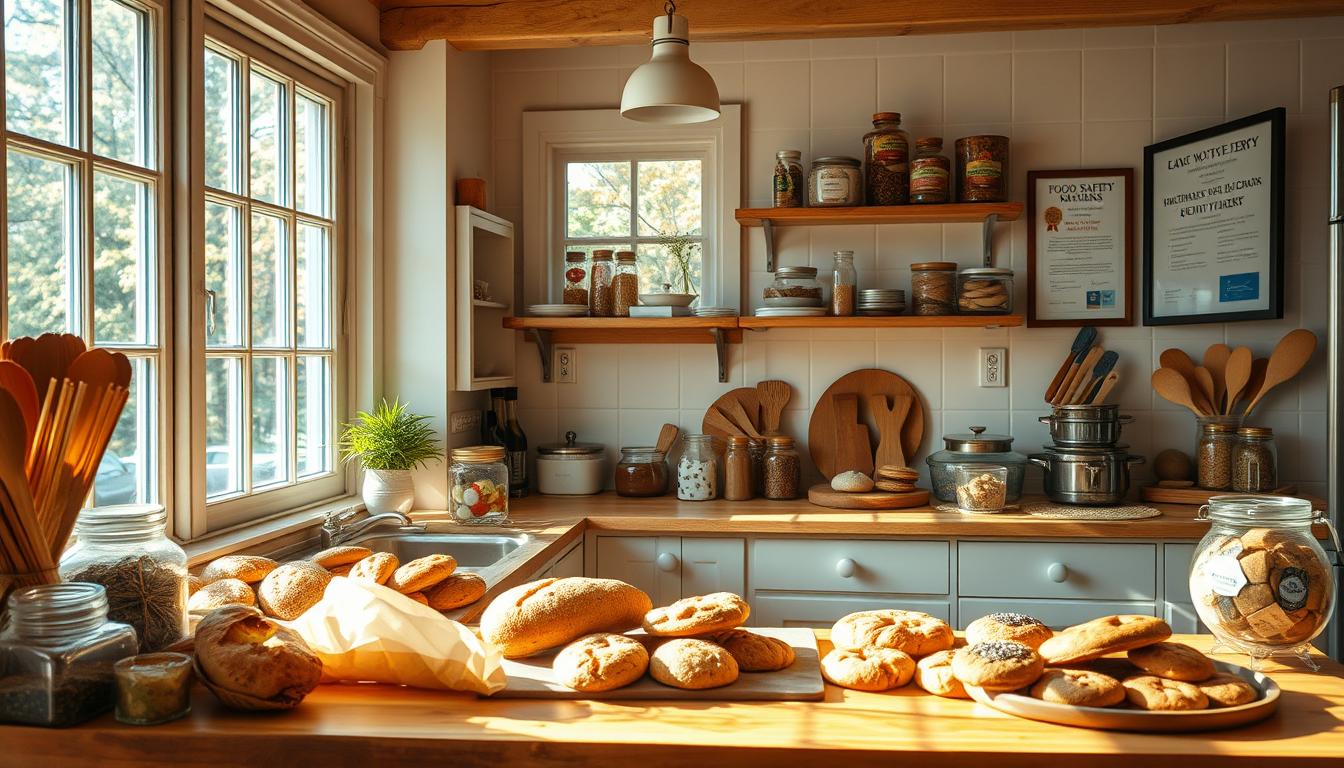
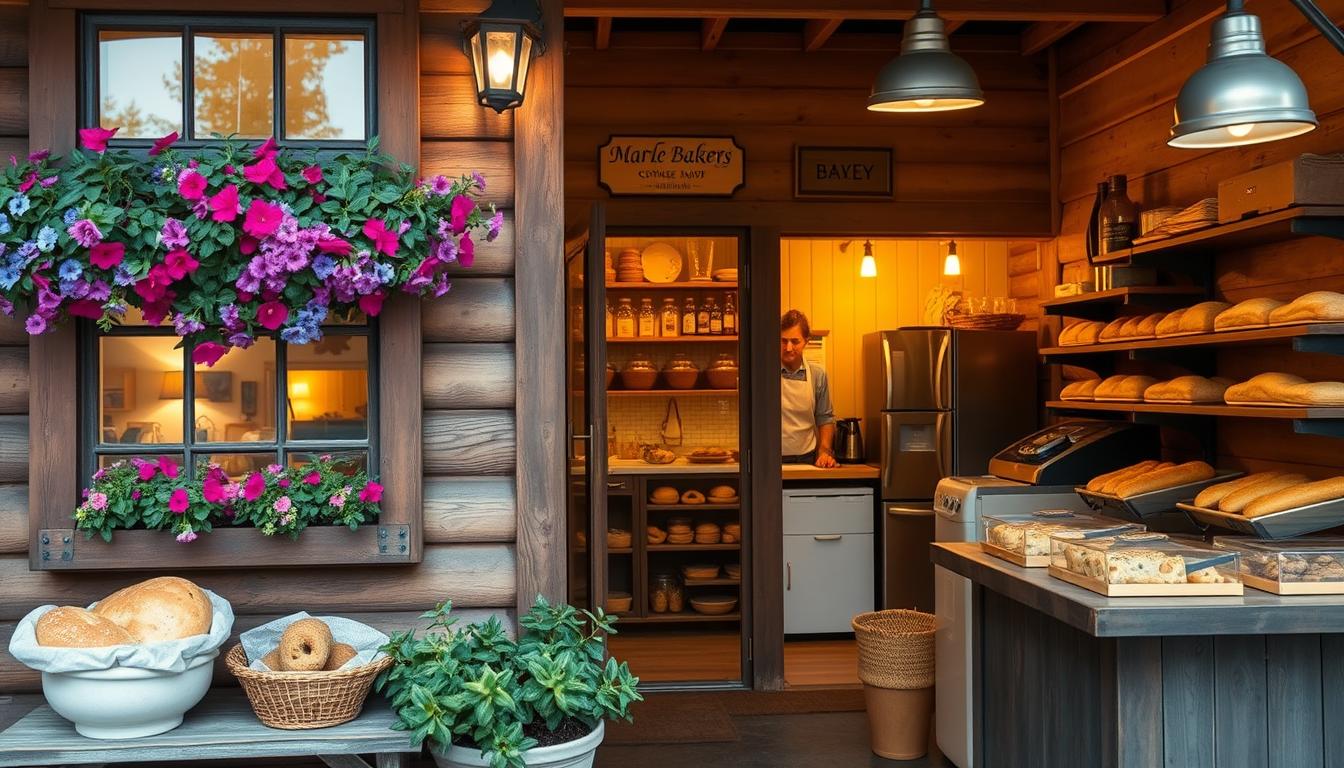
Leave a Reply